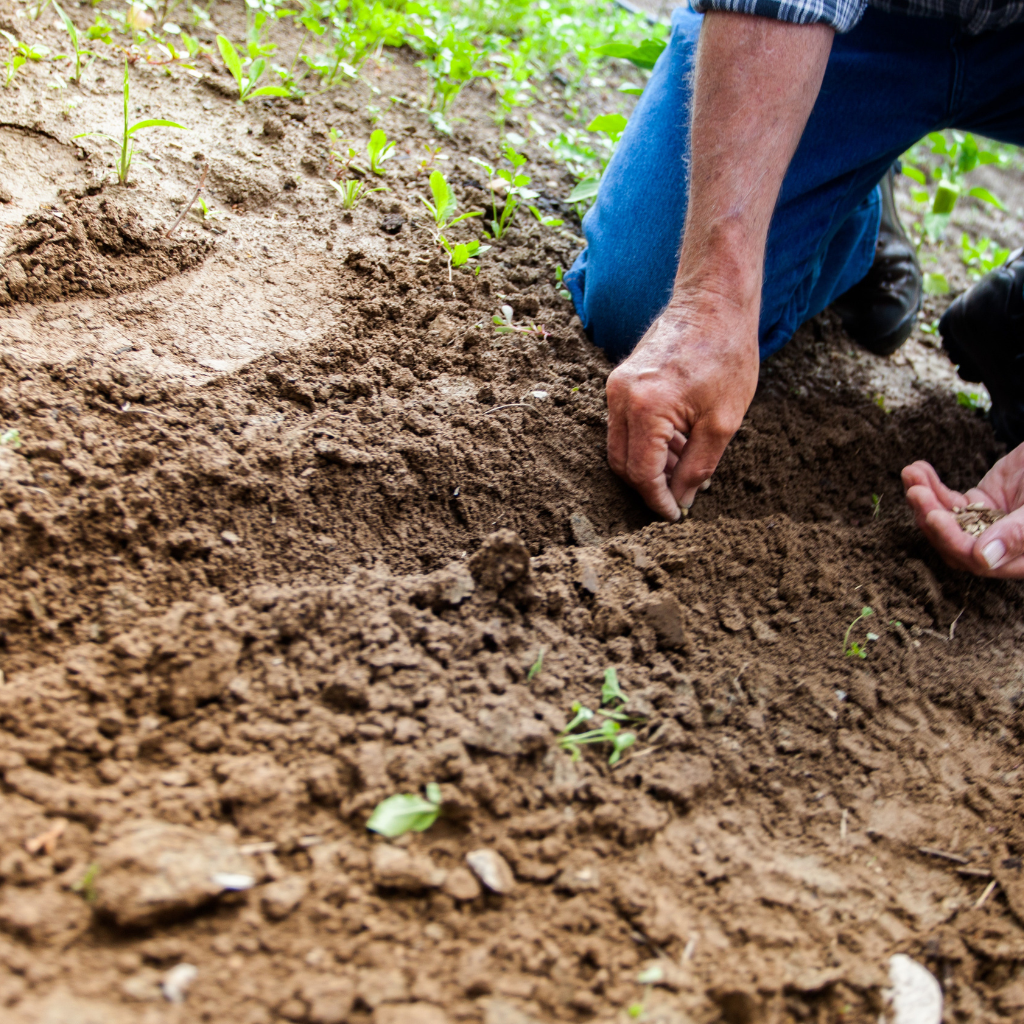What is Regenerative Farming?
Regenerative farming is a set of principles and practices that prioritize the restoration and rejuvenation of the land. It is centered around the idea that agricultural systems should work in harmony with nature, rather than against it. By integrating traditional wisdom with modern scientific understanding, regenerative farming aims to build resilient ecosystems, conserve natural resources, and enhance the overall health of the soil, plants, animals, and people.
Key Principles of Regenerative Farming
- Soil Health: Regenerative farming places great emphasis on nurturing the soil. Practices like cover cropping, crop rotation, and composting enrich the soil with organic matter, improve its structure, and increase its ability to retain water and nutrients. This, in turn, leads to enhanced crop productivity, reduced erosion, and carbon sequestration. On an individual level, we can learn more about composting and begin to compost at home.
- Biodiversity Conservation: Regenerative farmers actively promote biodiversity by creating habitats for beneficial insects, birds, and wildlife on their land. By avoiding monoculture and planting diverse crops, they foster a balanced ecosystem that naturally controls pests, increases pollination, and strengthens overall resilience against diseases and climate fluctuations. To look out for biodiversity in our own gardens, check out our blog about sustainable gardening practices.
- Water Management: Sustainable water management is crucial in regenerative farming. Techniques such as contour plowing, mulching, and water harvesting help prevent soil erosion, retain moisture, and improve water infiltration. By reducing irrigation requirements and mitigating runoff, regenerative farming minimizes water usage and helps preserve this precious resource. Curious how you can conserve water at home? Check out our recent blog for tips you can use at home.
- Carbon Sequestration: One of the most significant advantages of regenerative farming is its potential to sequester carbon dioxide from the atmosphere. By adopting practices that enhance organic matter in the soil, such as agroforestry and rotational grazing, regenerative farmers enable the land to act as a carbon sink, mitigating the impacts of climate change.
Why Regenerative Farming is Important
- Climate Change Mitigation: Regenerative farming practices have the potential to combat climate change by sequestering carbon, reducing greenhouse gas emissions, and preserving natural resources. This can contribute to the global effort of achieving carbon neutrality and mitigating the adverse effects of climate change.
- Soil Regeneration: Conventional farming practices have led to soil degradation and erosion, threatening agricultural productivity. Regenerative farming, on the other hand, focuses on restoring soil health and vitality, leading to improved crop yields, increased drought resistance, and enhanced nutrient availability.
- Biodiversity Conservation: Regenerative farming promotes the restoration of diverse ecosystems, providing habitats for wildlife, protecting endangered species, and preserving genetic diversity. This approach not only supports ecological balance but also contributes to the resilience of agricultural systems in the face of changing environmental conditions.
- Sustainable Food Production: By prioritizing long-term sustainability, regenerative farming helps create a more resilient and secure food system. It reduces reliance on synthetic inputs, promotes healthier and nutrient-dense crops, and supports local economies by fostering small-scale farming practices.
Regenerative farming offers a path towards a more sustainable and regenerative future. By adopting these practices, farmers can play a vital role in mitigating climate change, conserving natural resources, and ensuring food security for future generations. It is a call to embrace the wisdom of nature and work in harmony with the Earth, fostering a symbiotic relationship that nurtures both the land and the communities that depend on it.









